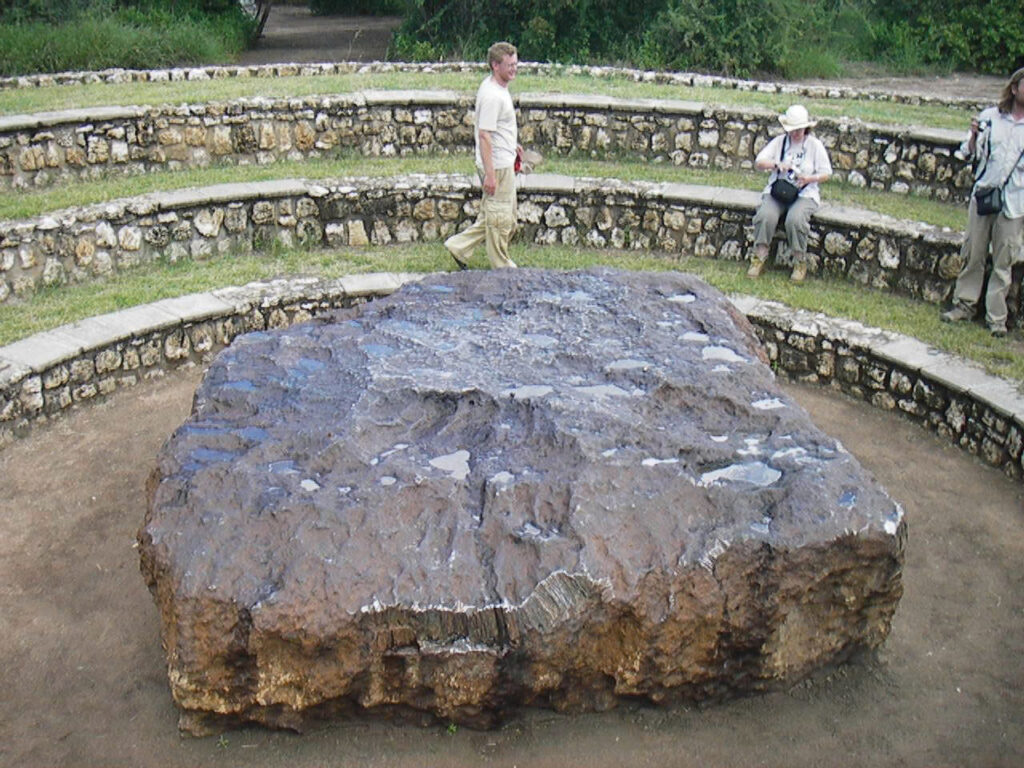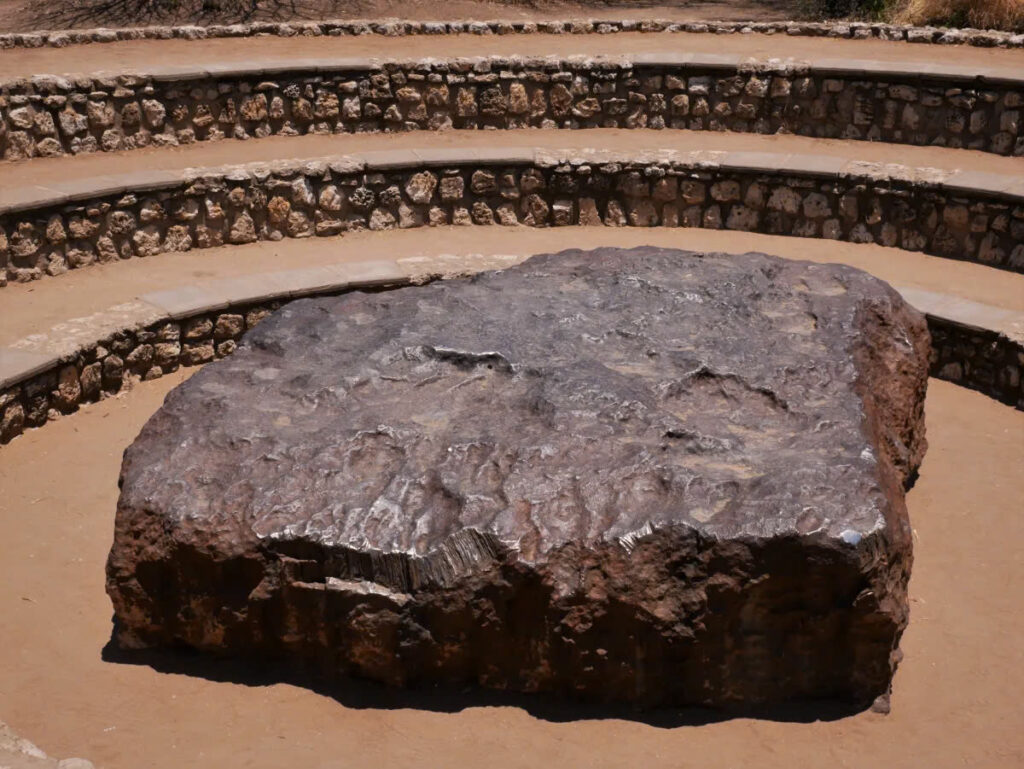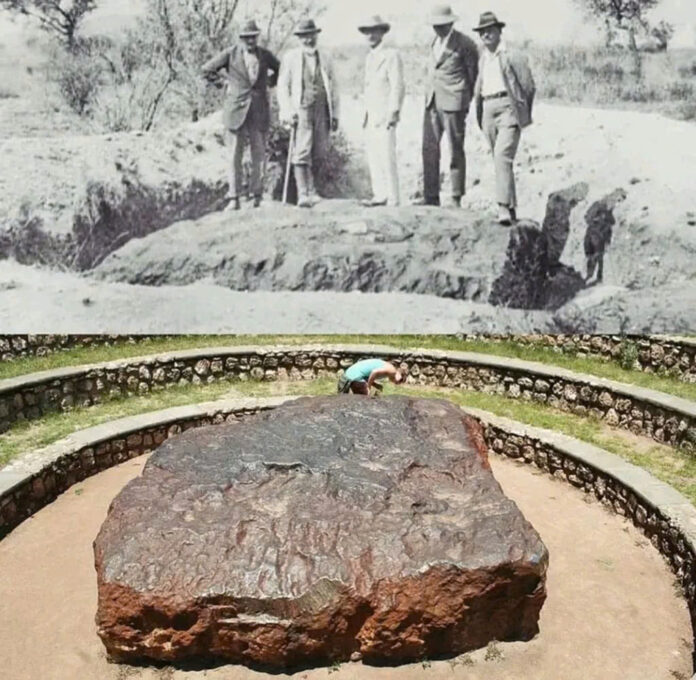An Extraordinary Encounter with Earth

Imagine a massive chunk of iron, weighing 60 tons, silently descending from the vast darkness of space and landing in what is now Namibia, Africa. This is the story of the Hoba meteorite – a celestial wonder that has captivated scientists and adventurers for decades.
A Meteorite Like No Other

Discovered in 1920 by a local farmer, the Hoba meteorite stands as the largest intact meteorite on our planet. Measuring 2.7 meters long and wide, and 0.9 meters high, this extraterrestrial giant challenges our understanding of cosmic interactions.
The Mysterious Touchdown
What makes the Hoba meteorite truly fascinating is its puzzling arrival. Unlike most large meteorites that create massive impact craters, this iron behemoth seems to have landed with an unexpectedly gentle touch. Scientists are still debating how such a massive object could have descended without leaving a significant mark on the Earth’s surface.
A Cosmic Composition

Primarily composed of iron and nickel, with traces of cobalt and other elements, the Hoba meteorite offers researchers a rare glimpse into the building blocks of our solar system. Its unique composition provides valuable insights into the early formation of planetary bodies and the complex processes that shaped our cosmic neighborhood.
A Living Geological Monument
Today, the meteorite remains exactly where it was found, preserved as a national monument in Namibia. It has transformed from a mysterious space rock into a testament to the universe’s grandeur, attracting visitors from around the world who come to marvel at its extraordinary story.
More Than Just a Rock
The Hoba meteorite is more than a mere geological artifact. It is a physical bridge connecting our planet to the vast, mysterious universe. Its presence challenges our understanding, sparks scientific curiosity, and reminds us of the incredible forces that continuously shape our world.

As it sits quietly in the Namibian landscape, the Hoba meteorite continues to whisper stories of cosmic journeys, planetary formations, and the incredible randomness of universal events. It stands as a silent witness to the complex and awe-inspiring processes that extend far beyond our immediate perception.
Each visitor, each scientist who studies it, adds another layer to its rich narrative – a narrative that began tens of thousands of years ago when this massive iron traveler first touched down on Earth, leaving us with more questions than answers

